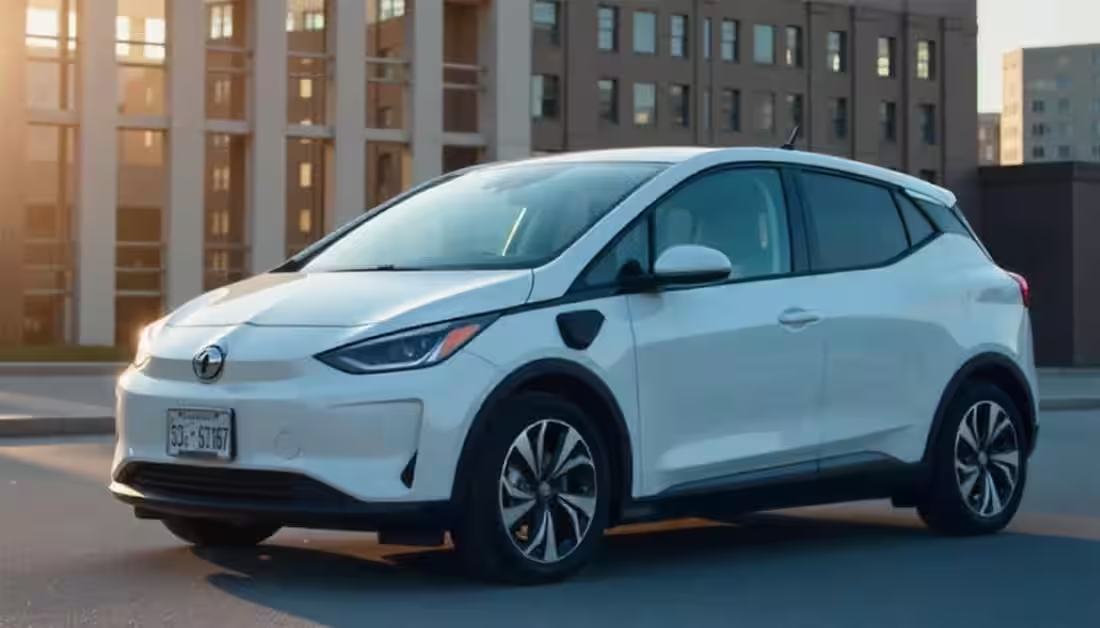
The Petrol Price Shock
It’s a hot afternoon, and you’re stuck at a red light. You glance at the fuel meter—empty.
“Didn’t I just fill the tank yesterday?”
Reluctantly, you turn towards the petrol pump. The queue is long, and people are shaking their heads at the display board.
Petrol price today: ₹110 per liter
Full tank = ₹5,500 gone in seconds
You watch as a sleek electric car silently glides past. No engine noise, no fumes, no waiting at the pump.
Your friend smirks, “That’s an EV! One charge, 300 km, no tension!”
You pause for a second. “EV? What’s that?”
SCENE 2: What is an Electric Vehicle?
An electric vehicle is a car that doesn’t need petrol or diesel. Instead, it runs on a battery—just like your smartphone. You plug it in at home or a charging station to “refuel.”
How Does It Work?
Think of your mobile phone:
- You charge it overnight.
- It runs all day without needing a recharge.
- There’s no smoke, no fuel, no noise.
That’s exactly how an EV works. Instead of an engine, it has:
- A battery pack that stores electricity.
- An electric motor that converts battery power into movement—no gears, no clutch.
- A charging port where you plug it in at home or a charging station.
- A control system that manages battery power for efficient driving.
EVs don’t just save money, they make driving smoother and futuristic.
SCENE 3: Different Types of EVs in India
Not all EVs are the same. Some run purely on electricity, while others have a petrol backup.
| Type of EV |
|---|
| Battery Electric Vehicle (BEV) |
| Plug-in Hybrid EV (PHEV) |
| Hybrid EV (HEV) |
Which one is best for you?
- Want a 100% petrol-free experience? Go for a BEV.
- Need petrol backup for long trips? A PHEV might work.
SCENE 4: Why Are EVs Getting Popular in India?
Five years ago, EVs were rare. Today, they are everywhere. Why?
- Petrol prices are rising. Petrol and diesel prices are unpredictable, while EV charging is cheaper and more stable.
- Government incentives. Buyers can get ₹1-2 lakh subsidies under the FAME II scheme.
- Charging stations are growing. More EV charging stations are being installed across India at malls, offices, petrol pumps, and highways.
- EVs are environmentally friendly. Zero emissions mean cleaner air and less pollution.
- EV technology is improving. Faster charging, better range, and lower prices make EVs more practical than before.
So, if you’re tired of rising fuel costs, an EV is a smart switch.
SCENE 5: EV Prices in India – Can You Afford One?
EVs used to be expensive, but now there are many budget-friendly options.
| EV Model |
|---|
| Tata Tiago EV |
| MG Comet EV |
| Citroën eC3 |
| Tata Nexon EV |
And with government subsidies, prices can go even lower.
SCENE 6: Where and How Do You Charge an EV in India?
One of the biggest questions people ask before buying an EV:
“Where will I charge it?”
Option 1: Home Charging
- The easiest option—just plug in your EV overnight.
- Full charge in 6-8 hours.
Option 2: Public Charging Stations
- Found at malls, petrol pumps, and metro stations.
- Use apps like Tata Power EZ Charge to find nearby chargers.
Option 3: Fast Charging (DC Chargers)
- 80% charge in just 40-60 minutes.
- Mostly found on highways and premium charging hubs.
Most EV owners charge at home overnight—just like a smartphone.
SCENE 7: Who Should Buy an EV in India?
EVs are perfect for:
- Daily city commuters – No petrol cost, just charge at home.
- People with home parking – Best for easy charging.
- Tech lovers – Smart, futuristic features.
- Environment-conscious buyers – Helps reduce air pollution.
Who should wait before buying?
- If you drive 500+ km daily without charging access.
- If you don’t have parking for a home charger.
Final Thoughts: Should You Buy an EV?
You’re at a crossroads.
Do you stick to petrol cars, or embrace the future of mobility?
If you want to save money, enjoy smooth driving, and go green, an EV is your best bet.
If you take frequent long trips without charging access, a petrol car may still work for you.
EVs aren’t just the future, they’re the present. The question is, are you ready to switch?
Explore the Best EVs in India Today.
What’s Next? Read More on EVs in India
- Best EVs Under ₹10 Lakh in India (2025)
- How to Charge an EV at Home? Complete Guide
- EV vs Petrol: Which Car is Cheaper in the Long Run?
EVBlogs.in is bringing EV content to life like never before. Stay tuned for our next post.
Disclaimer:
This content is powered by HumanFirst AI™, where human expertise leads, and AI assists for accuracy, speed, and optimization. Every article is carefully crafted by humans and enhanced with AI-driven insights to deliver the best content experience.

